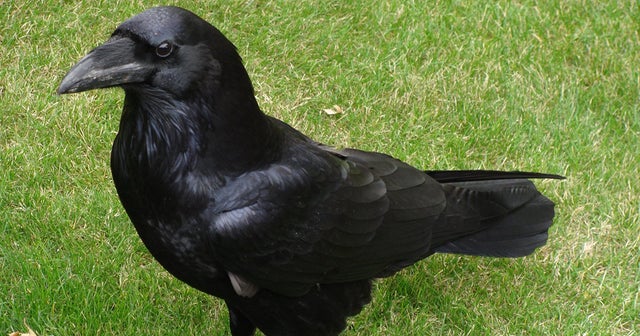
Ravens are a fascinating kind of bird. The Old Testament, Native American historical traditions, and Edgar Allen Poe’s notoriously terrifying poem The Raven all reference the sleek black animals with keen beaks. Ravens have always attracted people due of their remarkable intellect. They are known to hoard and utilize things as tools, as well as to search for food in pairs. However, avian intelligence got far less scholarly attention than that of the big apes until recently. By concentrating on ravens, a new research published in Scientific Reports aims to widen techniques to investigating animal cognition. Surprisingly, the researchers observed that ravens as young as 4 months old may do as well as adult orangutans and gorillas on cognitive tests.
A team from the Osnabrück Research Group for Comparative BioCognition (CBC), led by Professor Simone Pika, set out to perform the first real comparative study of ravens’ cognitive ability. For the study, eight juvenile ravens were hand-reared. Each was assessed using a modified version of the Primate Cognition Test Battery (PCTB) for apes (with fingers) to ravens (with beaks). Each avian subject was tested again at four, eight, twelve, and sixteen months. The PCTB’s physical components assessed cognitive functions such as the bird’s spatial awareness and understanding of item permanence. Communication and learning abilities were assessed using the social components.
The researchers used the standardized PCTB to assess the bird’s cognitive ability at each stage. Following the collection of this information, the results of the avian study were compared to those of gorillas and orangutans using the same metric. The fledgling ravens were intellectually similar to adult primates at the age of four months, especially in terms of problem-solving ability. The ravens have the same level of understanding of quantity, causality, and social learning as the previously examined primates. This displays social and physical intelligence, as well as “general rather than domain specialized intelligence,” according to the researchers. The study shows that ravens, who become independent from their nests at a young age, may require this intellect to survive.
It’s also possible that the test subjects were socialized by humans, resulting in outcomes that differ from those of wild juvenile ravens.
The team hopes to continue their research into raven intelligence—particularly by developing metrics to evaluate “true species-specific, rather than human-specific, cognitive skills.” In other words, within the raven’s realm of cognition, what does it mean to be smart?
Ravens are known to be bright birds, but a recent study suggests that juvenile ravens are on par with adult great apes in terms of cognitive ability.
At four stages in their growth, a team of researchers gave eight juvenile ravens cognitive examinations that included physical and social IQ assessments.
The ravens demonstrated a wide variety of cognitive abilities, including numbers, problem solving, spatial capabilities, and learning capacities, which were previously unreported.
h/t: [IFL Science]
